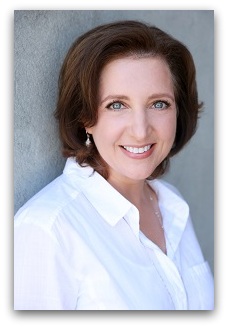In this week’s guest post Ling Wong uses her expertise and knowledge as she shares:
Mindset Secrets to Successfully Selling Premium Coaching Packages
By ling wong

A lot of business trainings tell us to sell coaching packages instead of single sessions, and raise our fees while we are at it so we can earn more, work less and have more energy to deliver our best services to our clients. Some of these trainings probably showed you how to design a program and price it.
Sounds good in theory, but… let me ask you – how much are your clients actually paying you? Do you consider the amount you are paid “premium”? (hmm, can you take just one or two new clients a month to pay the bills and more?)
Maybe you have a premium package sitting somewhere on your website, but you somehow have never been paid a “premium” fee; or you revert back to selling the “old” lower-cost packages when the rubber meets the road, i.e. during your sales conversation, because fears and doubts creep in and you chicken out.
If you (intellectually) know offering a premium package is better for your business, and you also have the knowledge to create the package – why aren’t you selling it? Where is the disconnect?
YOU, hold the answer. It’s all in your head.
Everything can sound good on paper, until it comes time to ask for the money.
There are a lot of fears, pre/misconceptions and judgments around “selling”, self-worth and value. Until you bust through these mindset hurdles, you will never feel completely comfortable during a sales conversation.
Your comfort level in asking to get paid is proportional to how much you ultimately get paid.
Preconception
Nobody likes being pushed into buying, and we may perceive people selling to be “bad” because some salesperson gave us bad experience. If you had bad experience with sales people, it is easy to equate selling as “dishonest,” and who wants to be perceived as such? Of course you don’t want to, so you hold back from selling.
Plus, there are many unfavorable images we associate with people doing selling – e.g. the used car salesman, the late-night infomercial dude, even that pushy MLM friend who won’t let you off the hook until you reluctantly sign up for stuff that you don’t want.
What if I tell you, selling = serving? What if you can serve your potential clients while you sell them your services? Educational marketing is a great example. You give people information and provide value to raise awareness about a problem. When they understand the problem they have actually has a solution and you, standing right there, provides that service – they will want to seek you out without you pushing your wares.
I sign a lot more clients after I changed my approach in my discovery sessions from constantly worrying about “what can I say or ask to get them to buy my stuff?” to “what questions can I ask to help this person see a solution to her challenges?” This change in attitude can give the energy behind sales conversations a major overhaul.
 How can you lead your potential clients into exploring working with you by serving them?
How can you lead your potential clients into exploring working with you by serving them?
Fears
What kind of selling works? Genuine selling. The kind that you don’t hide behind scripts and templates. The kind that you put yourself forward and connect with your potential clients. But our fears are making us hide… instead of making the connection so critical to getting “yes” from potential clients.
The Fear of Not Being Good Enough can make you feel that you, being yourself, are not enough. It makes you feel there gotta be a script that holds the key to the perfect sales conversation. Maybe you fear that you don’t know enough so you keep babbling on about what you know and where you were trained… completely negating the potential client (who just wants to be heard and be given a damn solution!)
Don’t forget that little voice in your head that keeps saying “who are you to ask for that much money?”
The Fear of Not Being Worthy can cause you to confuse “self-worth” to what people are paying you for – i.e. our services that will give them results. When you don’t feel worthy of being paid, guess what… you don’t get paid!
The Fear of Lack can make you discount or settle for the client purchasing a smaller package even though you know she needs something more extensive because you don’t want to end up with nothing! By settling for less, at least you get the client to pay you something… (note how this makes you come from a place of lack, and not one of service)
The Fear of Being Vulnerable can get you to puff up as a protective mechanism, setting up a wall that prevents you from deeply connecting with your potential clients (people buy high-ticket items with emotions, you need to make that connection). Or, maybe you are afraid of being criticized so you hide from having conversations with potential clients or JV partners. If you hide, they can’t find you!
The Fear of Rejection can make you not ask for more money under the misconception that you will get more “no’s” if your price is higher. If you have this fear, the problem is not the price, the problem is you not having figured out how to communicate the value you deliver.

Can you recognize when you fears kick in during your sales conversations?
Boundary and Codependency
In this article, I explored money boundary and codependency extensively. Here is the highlight:
- If you are undercharging and not asking for a “premium price,” you may feel that you need to give everyone access to your service and you have the limiting belief or misconception that you can “help more people” by charging less. (You are trying to give everyone your stuff whether they want it or not – and this, is a violation of the other person’s boundary.)
- If you are over-delivering (e.g. going overtime during your sessions, writing pages after pages of support emails, “throwing in” extras), essentially giving “premium” services without being compensated for it, you may be feeling responsible for your clients’ results even though they need to do the work to succeed. Because you feel responsible, you would bend over backwards – compromising your own boundaries in order to “help” that person with the misconception that somehow, you can do the work for your client (By the way, the client may or may not want to be helped, so in a way, you are violating that her personal choice.)
- If you have been constantly discounting, you may be buying into the client’s money stories and somehow made felt responsible that your fee will turn into the cause of her distress so you discount to make yourself feel better. (By the way, you have no rights to decided for the other person what she can or cannot afford… it’s her priority and her decisions to make.)
- If you have been giving away services for free – STOP! This is martyr mentality stemming from a fear of not being worthy (you are trying to prove to yourself that you are) and can turn into victimhood that kicks you off the driver’s seat altogether.
When your boundary is overstepped, it is you who allows that to happen.
 If it’s your boundary crime to commit, can you recognize your triggers and “rehearse” what you can do or say in those situations?
If it’s your boundary crime to commit, can you recognize your triggers and “rehearse” what you can do or say in those situations?
Self-Worth vs the Value of Your Program
I have a bone with the phrase “charge what you are worth” – I explained it in this post.
If you can separate your self-worth from the value you deliver through your program, then the question “how can my time be worth that much” will not even enter the equation.
Focus on the value your clients get out of your program or service package, not how much time you spend on the phone with them.
If they get a more out of your service than what they pay you, then offering them your package is doing them a service. The key, again, is to communicate effectively so they understand the value of your program, and the impact it has on their lives.
 Write down how your work impacts your clients in the areas of health, career, finance, relationship and personal growth. Then put a monetary value (wherever possible) against each item. Now, add it all up and see for yourself how much value you deliver. Can you charge more?
Write down how your work impacts your clients in the areas of health, career, finance, relationship and personal growth. Then put a monetary value (wherever possible) against each item. Now, add it all up and see for yourself how much value you deliver. Can you charge more?
***
Selling, and selling high-ticket items, is not scary. You can sell more with integrity by having the right mindset and perspective, overcoming your fears, strengthening your boundaries, and properly communicating the value of your offer.
About Ling Wong
Ling offers “Business Soulwork + Marketing Activation” to help coaches nail their Messages, claim their Superpowers and muster up the Guts to monetize their Truth so they can build a purposeful and profitable Personality-Driven business that is a full expression of their individuality and creativity.
Through her “left brain meets right brain” approach, Ling helps her clients tap into their intuition and ground those light bulb moments with practical strategies and marketing tactics to build a profitable and sustainable business.
Ready to Nail Your Message, Claim Your Superpowers and Monetize Your Truth for a Personality-Driven business? Get your FREE “Monetize Your Truth Mindset + Marketing Training” here.




 Carrie Greene is a speaker, author and business coach.
Carrie Greene is a speaker, author and business coach.
 Write down how your work impacts your clients in the areas of health, career, finance, relationship and personal growth. Then put a monetary value (wherever possible) against each item. Now, add it all up and see for yourself how much value you deliver. Can you charge more?
Write down how your work impacts your clients in the areas of health, career, finance, relationship and personal growth. Then put a monetary value (wherever possible) against each item. Now, add it all up and see for yourself how much value you deliver. Can you charge more?




